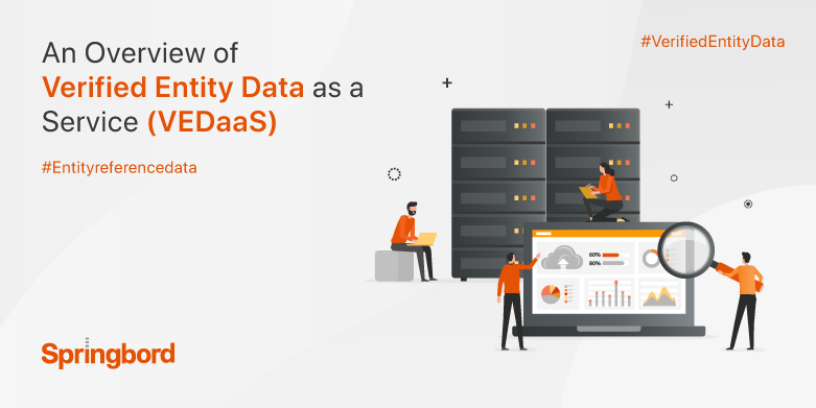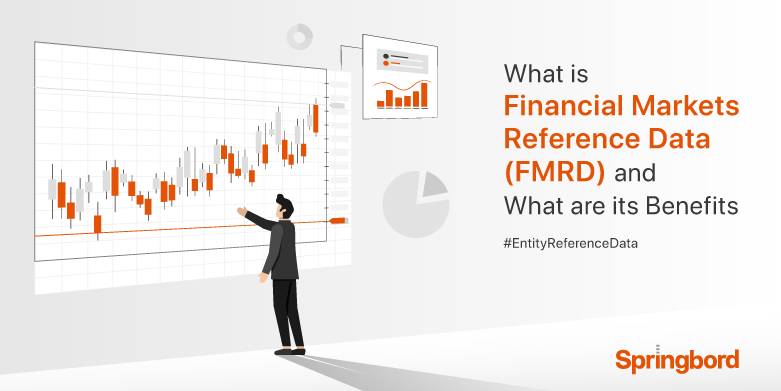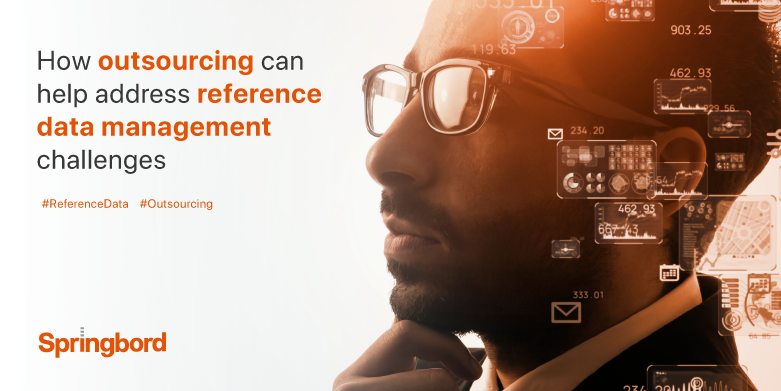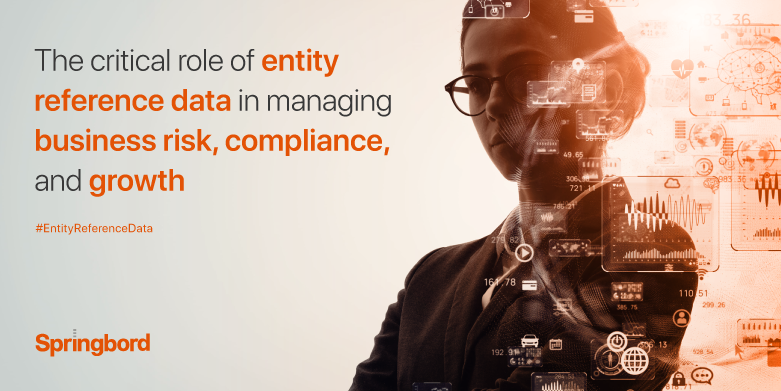 Read time 2 min
Read time 2 minBefore we get to know about Verified Entity Data as a Service, let us learn what MDS is. MDS, abbreviated as Managed Data Service, comprises a defined list of legal entity reference data fields that are individually collected, checked, and cross-referenced at government and public sources and then combined to build an MDS Entity Record. This is done to independently find and verify the opponent parties of clients globally. VEDaas is required in order to carry out this operation successfully.
Verified Entity Data as a Service (VEDaas) is used to check the accuracy of collected data and link the data to parent entity records. This data is then cross-referenced to various industry codes and client identifiers that are available internally. You can make use of the processed data to make informed decisions and comply with the regulatory reporting requirements. All these data are handled and maintained in the central VEDaaS database. This VEDaaS database is nothing but the aggregate of legal entities of your clients’ interests. With the VEDaas database, you can map data to client-unique entity identifiers, thus streamlining consumption and down-streaming content processing.
Benefits VEDaas offers
Refines search
The first and foremost benefit of the VEDaaS database is that it lets clients search for legal entities of over millions. The content can be researched or refreshed with the database, thus challenging the content and request. Also, delivering data in either flat files or via API is made possible. This way, you can enable the integration of the database into client workflows.
Delivers quality data output
The higher the data quality, the better the decisions. Data quality helps improve client onboarding and the ability to match the regulatory reporting requirements. Finding crucial relationships and information on the entities offer clients a better understanding of the risk involved in the business and the risk exposure for their opponent parties.
Cuts down costs
Checking, managing, and updating data internally on a periodic basis can prove to be a costly affair for businesses. Allocating to a shared pool of resources drastically reduces the cost and time and improves the overall process of your business.
Challenges
Sourcing and managing legal entity reference data seems expensive and complicated. Demand for data can mean a more significant number of stakeholders need access to it in order to function. Collecting accurate and apposite data itself is a challenge. But to overcome this, it is necessary to keep the content fresh and complete, compounding the challenge further. As the businesses change, data change too. Many firms will change their corporate structure each year, which means the records about the client might be misleading.
Verified Entity Data as a Service comes as a savior here by providing a centralized view of the legal entity reference data. With this, clients can assess the entity relationships and the risks of their counterparts.
Conclusion
Entity reference data with errors can significantly impact the operation of your business. It also has the power to hamper the growth of your business, putting survival in question. To avoid the possible consequences and mishaps, it is wise to outsource your entity reference data to a consulting agency that can help in improving your performance. Springbord is one of the leading data management companies that offer solutions tailored to meet your needs and requirements and, most importantly, fit your budget. Get in touch with us today to know more about our expertise and how we can help accelerate the growth of your business.







